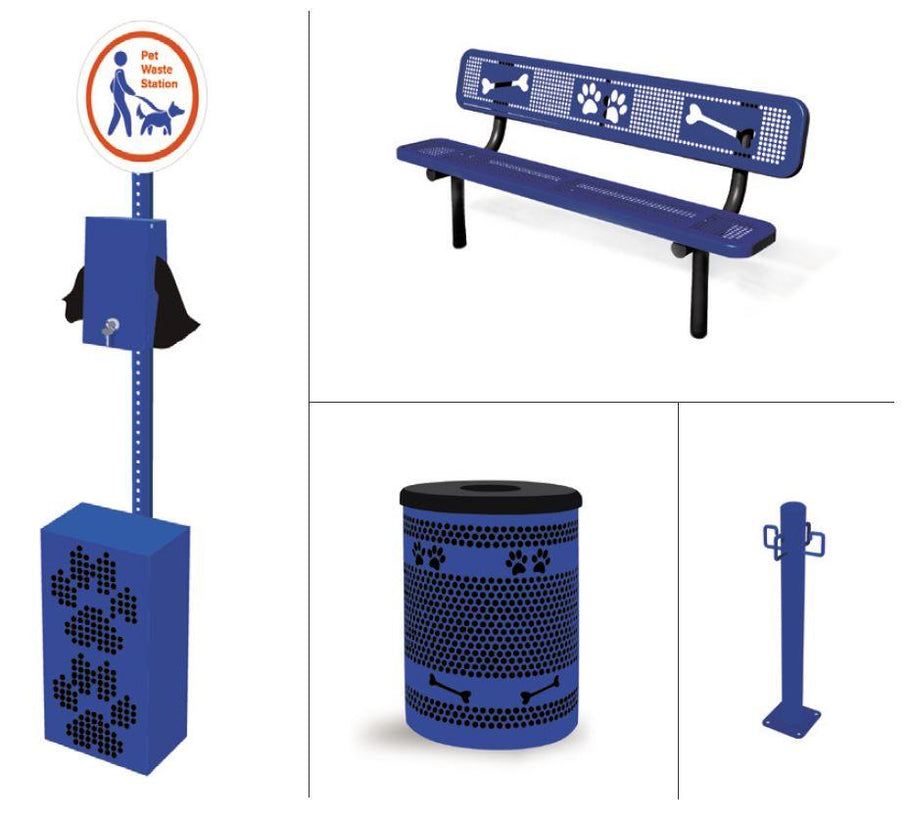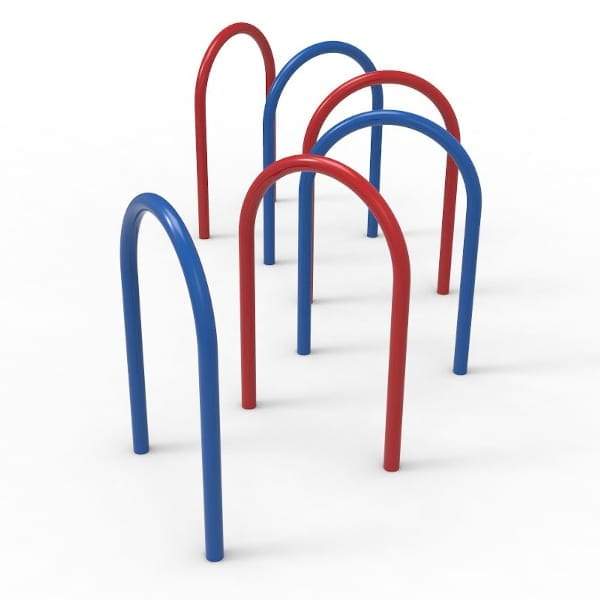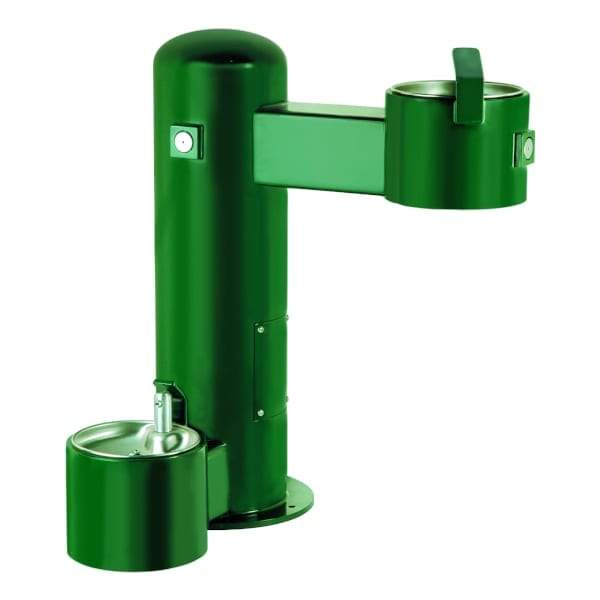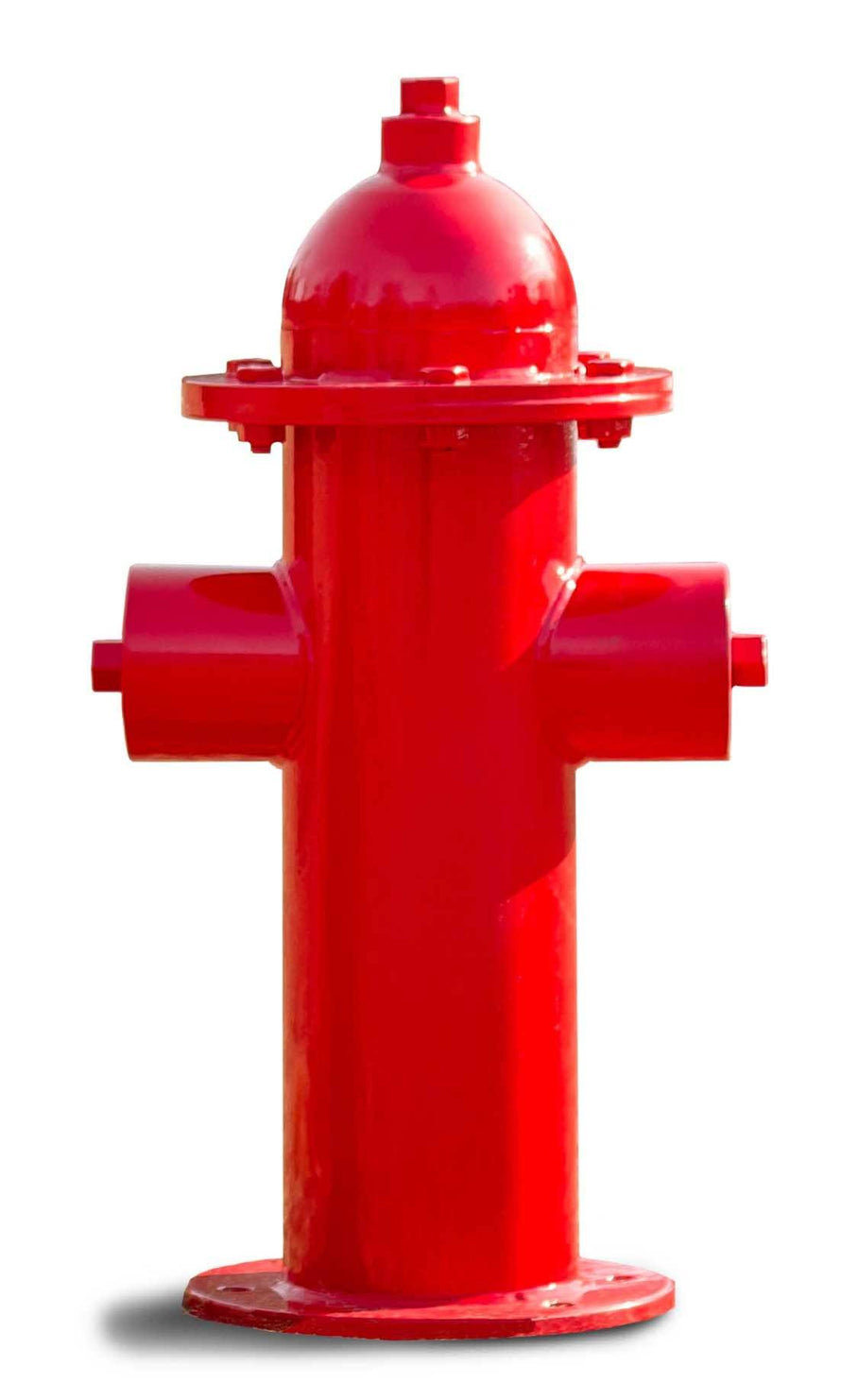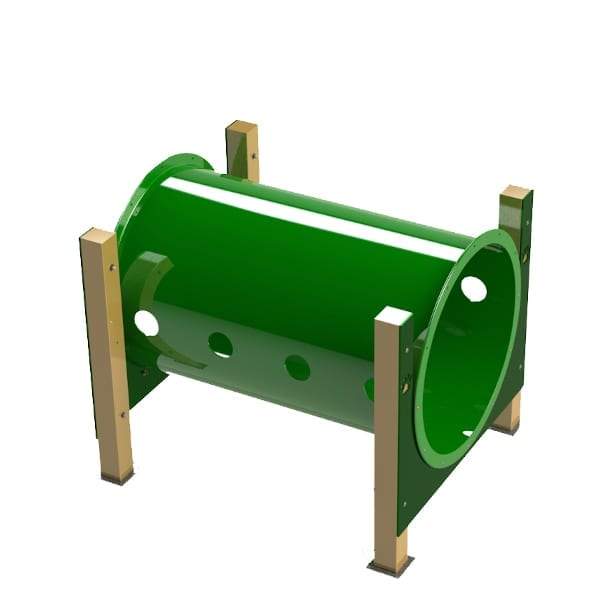Dog Parks and Alaskan Malamutes
I tell every puppy person - socialize your puppy. Take him everywhere - playgroups, dog parks, doggy day care...but don't be surprised if by 1 year of age if he's kicked out. It's normal. It happens to all of us! Malamutes generally don't make good dog park dogs. 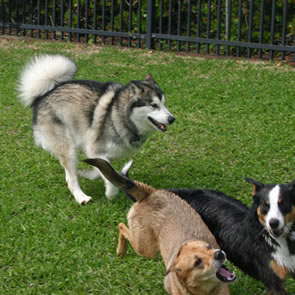
While your Malamute puppy is quite sociable and you are working hard to make him love every other dog on the planet - it probably won't last. It likely has something to do with the fact that when Malamutes grow up - they GROW UP and become adults. They don't retain many puppy characteristics which makes them less tolerant of dogs that do. Look at it this way - how tolerant do you feel when your immature 30 year old nephew does something totally juvenile and childish? Do you just laugh and say - oh well, he's ONLY 30....or do you tell him he's acting like a jerk? My guess is you tactfully tell him. Well, that's what your Malamute will do once he grows up. He will not suffer fools quietly. He'll bite them on the nose.
Because most humans don't understand this disciplinary behavior (they have been led to believe all dogs should love one another and sing Kumbaya)...he will not be very well tolerated when the perfectly justified Malamute tells the retriever he's a jerk for not submitting to the King of Dogs. In the olden days the King would just say off with his head if a subject dare question his authority - well, Malamutes are primitive dogs - so in that regard- saying off with his head because Spot doesn't submit to the King doesn't seem all that unreasonable. After all, he let Rover LIVE.
When Malamutes grow up they attain a high level of dog manners if socialized to other dogs appropriately. They expect to use these manners. They also expect the other dogs to use their dog manners. But unfortunately, because other breeds have been bred to be perMalamuteual immature nephews, they don't have good dog manners. Some are even insubordinate jerks (aggressive and yappy dogs). This infuriates most Malamutes. Not only are they not genuflecting to the King, but they are mocking him!!! So the Malamute decides to take matters in to his own paws and correct the insufferable fool. Unfortunately this goes over like a lead balloon with the dog's owner or daycare provider. The Malamute must go. If they are particularly tolerant, they will give the Mal another chance - but no doubt it will happen again.
Is it fair? No. But you'll never get some people to understand that dogs don't sing Kumbaya. They are dogs. There are dog rules and people rules and some people don't understand why dogs don't play by people rules. So it becomes the Malamute's fault. And sometimes it is - if the Malamute wasn't socialized extensively he may be a little too harsh - like King Henry the Eighth was harsh with Anne Boleyn. That's not the Mal's fault, that's the owner's fault for not socializing him well. But in 9 times out of 10 it's not the owner's fault either - it's a situation that was not handled well in general. Ignorant owner lets immature nephew dog run up and pounce on King Malamute - or worse yet growl and bark at him. Most Malamute aggressive responses in a dog park or daycare can be diffused if you know what you're looking for. Day care workers and the average dog owner are used to dogs that sing Kumbaya so don't usually know what the first signs of aggression are. They'll miss the signs every time.
It also helps if the people frequenting the park with their immature nephew dogs have common sense. This is usually not the case. Unless you've dealt with a dog that doesn't like other dogs you tend to be ignorant of the fact that another dogs may not like yours. You may expect them to sing Kumbaya together and miss the tell-tale signs of stiff stance, ears up, hard eyes, fur up....and it will be too late. A fight ensues and because the Malamute bit the nose of the immature nephew dog, it is his fault. It doesn't matter that the immature nephew dog taunted the Mal, growled at the Mal, insulted his mother....it just matters who yelps "NOT FAIR" and who wins. The Malamute will always win - or it won't fight. It has enough sense (what I've been calling dog manners) to typically not start a fight it can't win. It will always submit to superior Alphaness (either the owner telling the mal to stop, or the other dogs' superior Alphaness).
This is why dog parks and doggie day care do not work for most Malamutes once they grow up. It's great for them when they are puppies. This does not mean you shouldn't go while you can - they are a great experience for any dog if you are careful and understand what may happen eventually. He will grow up, he will become the King of Dogs. Do you think a King would hang out with his subjects and hold hands around the bon fire? No, he's KINGLY. He hangs out in the castle with the Queen and his minions and doesn't mingle with the common folk. He would only do it if the subjects showed proper respect (dog manners) and there will always be a dog that does not show proper respect (or thinks the King should genuflect to HIM). Even if the King did hold hands around the bon fire, he would not tolerate insubordination and disrespect, just as the Malamute doesn't.
A Study about Dog Parks
Dog parks are a new phenomenon the last 15 years...you either love them or hate them.A recently published study focused not on the dogs who visit dog parks, but rather on the owners. Patrick Jackson, a sociologist at Sonoma State University in California, was interested in the emerging social norms and group dynamics of people who gathered regularly at a community dog park with their dogs. He wrote a paper regarding his observations.Dog Park People
Mr. Jackson used an ethnographic method of data collection, an approach that is commonly used by sociologists when studying complex interactions among people. Over a period of 15 months, Jackson visited a local community dog park with his two dogs. They visited the park between three and five times per week and at various times during the day. He collected data that included owner and dog demographics, the activity patterns and spatial distributions of people and dogs, visit durations, topics of conversation among owners, the frequency and type of conflict between dogs, and the approaches used by owners to resolve problems. Data was recorded during visits and immediately afterward and behaviors were recorded and various themes and patterns emerged.
The interactions that resulted:
- Public Demonstration of Owner-dog connection: Dog park visitors would demonstrate their attachment to their dog through active play with the dog, offering friendly eye contact, and speaking to their dog. This appears to be an important component of dog park culture as it allows all visitors to place each dog with his/her owner. In other words, many visitors used dog parks to "prove" they are "good owners" and used public displays of affection ti demonstrate it.
- Types of Problems: Four major problems wereobserved and happened on a regular basis. 1) mobbing/aggression at the gated entry into the park; 2) mounting behaviors; 3) aggressive behavior (attacks and fights); 4) feces clean-up issues. Some behavior problems that dogs showed were considered annoying but not necessarily in need of intervention.Examples were: jumping on people, urinating on the benches, and excessive attention-seeking behaviors toward people other than the owner.
Jackson identified a set of approaches that the park attendees regularly used to avoid or respond to problems in the park. These were summarized as:
- Avoidance: This occurred when people witnessed a commotion such as a dog fight or a dog being mobbed by several dogs at the gate. Others in the park would simply "steer clear" of the area and would not get involved.
- Leaving the area or the park: This tactic was observed both by people whose dogs had been attacked or were being repeatedly mounted by another dogas well as by owners whose dogs were the misbehaving badly. Owners of dogs who had been attacked or bullied typically left angry and upset. Owners of dogs who had misbehaved often moved to another area of the park or “left early".
- Humor and Baby Talk: Humor was reported to occur most frequently when one dog was mounting another. Sex jokes were popular. Humor was also used at the expense of owners whose dogs were being mounted by another dog or were upset about the behavior of other dogs or owners. Finally, some owners would use remedial (baby) talk to their dogs to ostensibly chastise them for misbehavior while doing nothing to actually stop or prevent the behavior.
He observed situations in which a dog was being emotionally harmed and or could possibly be physically injured. I suspect these are quite common.
- Immediately after entering the park, a dog stares down and then chases another dog, holding his head over the retreating dog’s shoulder and snarling. The dog then switches to another dog, continuing this behavior. (Owner: Does nothing. Other owners: Watch and say/do nothing). This would not go over well with an adult Malamute...most likely a fight would ensue.
- A dog mounts another dog and will not stop. The targeted dog’s owner repeatedly attempts to get the Lab off of her dog, to no avail. Four people standing nearby watch this and laugh. The dog’s owner finally succeeds in removing the Lab from her dog. Upset and angry, she leaves the park. The observing owners joke about the incident.In my experience many owners of lab and golden type dogs do not understand that mounting is dominance related (and could lead to a serious fight). Most will laugh it off when it could cause something quite serious.
- An older dog is attacked by a young dog. The fight is prolonged and the owners have difficulty breaking the two dogs apart. Following the attack, the young dog’s owner said to his dog: “Bad dog; lie down, sit down. We are going home early because of you."A fight that ensues can be particularly bad for an old dog if one of the owners is too frightened or unwilling to get involved.
- A dog’s ear was bitten off by another dog. Apparently the problem was “resolved" because the attacking dog’s owner offered to pay the veterinary bill. This incident is reported in a section describing ways in which owners “over-react" to problems. Personally I would not call this overreacting...on the other hand, why put your dog in this kind of situation.
Are dog parks safe for dogs?Granted, this ethnographic study examined the culture of a single dog park. Dog parks vary in size, type of rules, participant behavior, and numerous other factors.However, until a study comes along that convincesotherwise, I think it is best to provide play times with doggie friends who they know well (and whose owners I know and trust as responsible and caring dog people).
Do some Alaskan Malamutes do well at dog parks? Sure, a few do (like Kiska or Cheesecake or Mocha). A few learn the words to Kumbaya and even hold hands - but typically those are the dogs that are not very Alpha in personality and ALSO have good Alpha owners that can give them excellent guidance. They are also typically neutered or spayed. And their owners prescreen and are careful about the other owners in the park.
Alpha Malamutes rarely do well in a dog park. It's "iffy" with unneutered or unspayed Malamutes as well. They almost alwaysget kicked out of day care and dog parks eventually. Sometimes even lower ranking dogs get kicked out because the day care people or the owners are not alpha enough to diffuse situations before they become critical. It's not your fault. It's not the dog's fault. It's being an Alaskan Malamute. The King of dogs....








